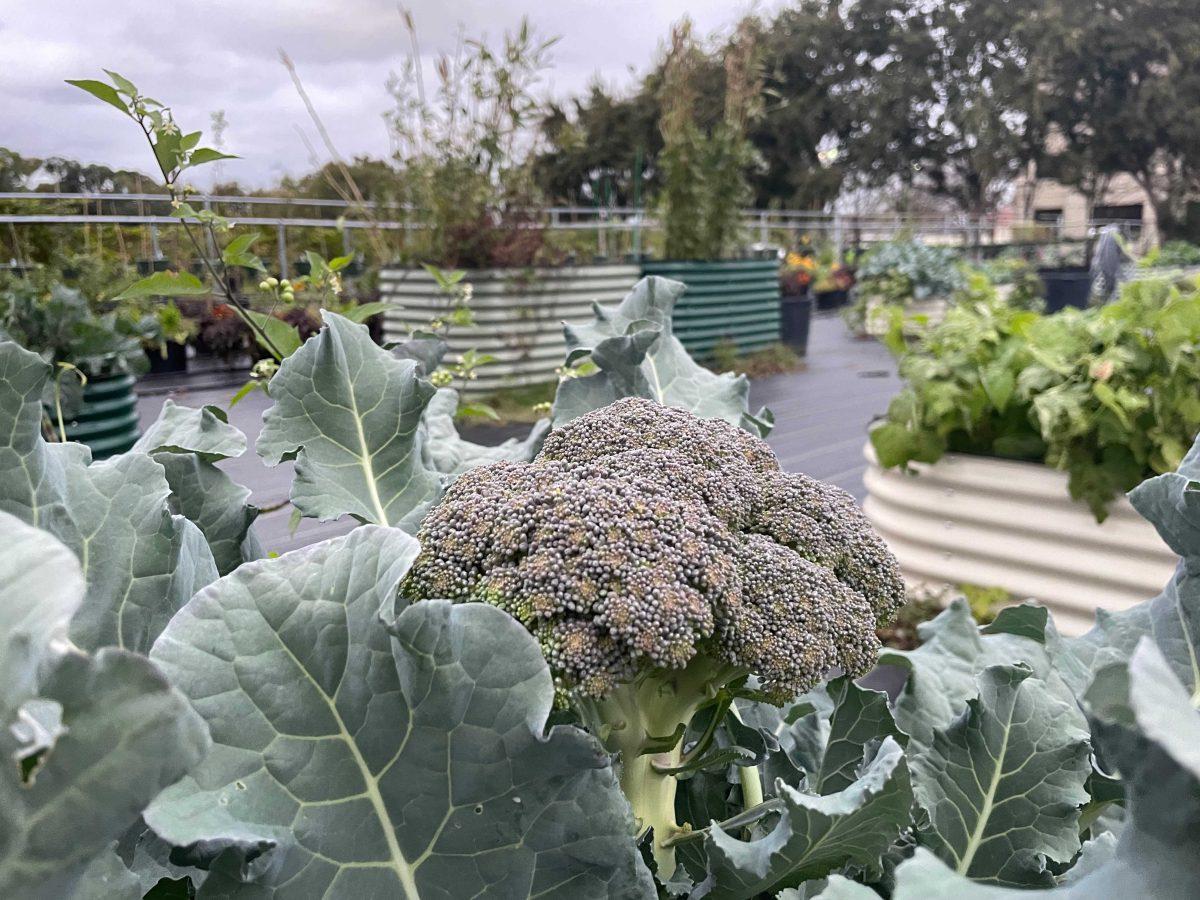Every other day, Pramod Pantha, a postdoctoral researcher of plant sciences, takes his two young daughters from their apartment to LSU’s Community Garden, a small corner of campus bursting with color from produce like tomatoes, sunflowers and blueberries.
“We can transfer the knowledge we have to the growing, young scientists here,” said Pantha, motioning to his daughter, Pratyosha.
Pantha chooses which plants to grow based on the season. Last summer, his family grew a lot of cucumbers and onions. This season, they’re growing carrots, onions, mustard greens and broccoli, the latter being Pratyosha’s favorite plant to grow.
Thankful for the opportunity, Pantha has found peace in visiting the garden for the past two years he has used it.
“It’s kind of a break from our daily, busy schedule from work,” Pantha said. “It’s refreshing to come to the community garden here.”
From graduate students to children like Pratyosha, the community garden offers a learning opportunity for students and faculty to learn about gardening. Students can plant anything they want, and LSU can provide certain plants or seeds, as well as education modules if students have questions, said Ed Bush, one of the community garden’s faculty advisers.
Bush said that he and the other advisers, including assistant professor at the LSU AgCenter Kathryn Fontenot, wanted to establish a group of students that were interested in a community garden.
After securing a sustainability grant to fund the project, the garden drew a diverse variety of students from different parts of campus. Bush said he frequently sees groups of students meeting at the garden to eat lunch and enjoy gardening together.
“It’s more of a community, and I think that’s the unique outcome of this project,” said Bush, who has also served as co-director of the LSU Coastal Roots Program since 2001.
Horticulture graduate student Kiarah Craft has a bed of crops in the community garden, visiting about once a week to check on her plants and to harvest. She grows a variety of food including yellow and purple cauliflower in the spirit of LSU.
Craft said she really enjoys gardening, finding it fulfilling. She added that the hobby saves her money at the grocery store.
“That’s money I could have been spending, but now it’s just for free,” Craft said.
International studies senior Emily Clarke is the director of Geaux Green, an environmental sustainability club at LSU. She said that she has always felt she has had a green thumb, quickly learning that the community garden is an excellent resource to sustain her passion.
Geaux Green has a plot of land that is taken care of by the members, Clarke said. They host their meetings next to the community garden so that their plot can be checked on, she said.
It’s a fun way to help people interact with gardening.
“It’s just kind of a fun way to help people interact with the garden,” Clarke said. “It’s nice.”
After putting work into maintaining the plot, Clarke said it’s gratifying to be able to harvest the produce Geaux Green grows, especially because she feels it’s better for the environment rather than buying produce from the grocery store with a higher carbon footprint.
“It’s always nice when you can do it yourself, not only because it’s gratifying because you put work into it, and it’s rewarding, but also just because you’re like, ‘It doesn’t have a plastic bag around it,’ and that’s also nice,” Clarke said.
Every semester, members from the community garden host a dinner to celebrate their efforts, cooking the harvests from the very plants rooted in LSU’s soil. This semester’s dinner, which took place Tuesday, saw members gathered in the nearby Hill Farm Teaching Facility to escape the nearly 40 degree weather.
Inside the building was a table of platters: lasagna made from garden-grown tomato and basil, as well as a vegetarian pasta with broccoli and cauliflower.
Together, the members bonded over the garden’s harvest that they spent the past semester cultivating, sitting next to the windows overlooking the garden that grew the very food on their plates.
“It brings a good point in the semester where we can all celebrate what we’ve learned and actually have it here on the farm,” Bush said.





